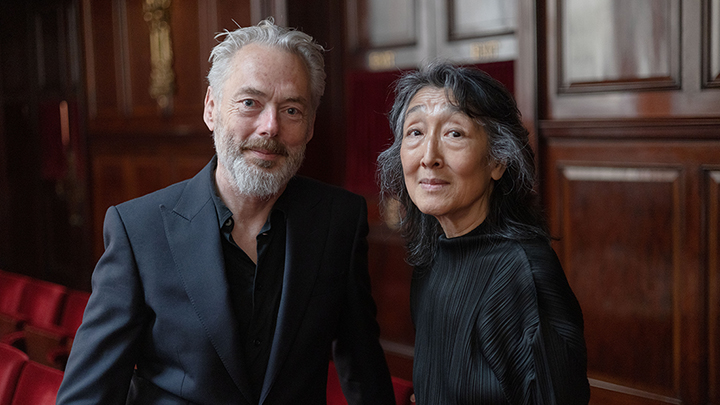

In the past twenty years, I’ve heard Padmore twice prior in this music, and he’s committed it to disc with the pianist Paul Lewis and the fortepianist Kristian Bezuidenhout. It’s always intriguing to hear how a performance changes with time and with a new perspective from the keyboard. When Padmore tackled these songs with Lewis, his voice still retained the clarion beauty of its youth, with a gleaming tone and melting legato. He was the ideal complement to Müller’s poetry: still hopeful, not yet lost. By contrast, Lewis’s sardonic accompaniment seemed to telegraph a fruitless quest.
A few years later, Padmore sounded a touch pale, which suited the drier, less Romantic quality of Bezuidenhout’s period instrument. This was a meeting of equals, who suggested a road to Hell that had been sputtering out in front of them for a long time.
Although Uchida and Padmore have collaborated and recorded together for some time, their pairing seemed more than a little mismatched in their performance at the intimate Perelman Theater, where the concert was hosted by the Philadelphia Chamber Music Society. In the five years since I last encountered Padmore live, his voice has become not only more hollow but genuinely unsteady. Sustained notes slid off pitch like butter melting in a skillet. Phrases were chopped apart in perilous places. Padmore could not always ideally control his volume, though his voice took on a more appealing tone in belted lines than in quieter utterances, which emerged with a parlando edge.
Some singers use this music as an opportunity to keen and contort, so I appreciate that Padmore avoided the worst instincts of recital acting. However, his tendency to stand and deliver made for a somewhat static performance. Only in “Der Leiermann” did he fully attempt to introduce some physicality into his interpretation, a haunted miming of the organ grinder’s endless playing. At other times, he dreamily watched Uchida in postludes, as if to suggest the speaker’s hearing beautiful music in the far-off distance. But the overall effect was one of flatness and repetition.
The austerity of Padmore’s current approach might appeal to certain listening, but it alienated me from the passionate emotions at the core of this music. The speaker of Müller’s poems is an idealistic young man whose journey to the depths of despair is devastating in part because of his youth and the loss of his potential. In Padmore’s present guise, the descent feels too often like a foregone conclusion.
It also feels out of step with the richness of Uchida’s playing style. Juicy, sustained phrases marked her approach to Schubert’s music, lush but never showy for its own sake. Even in more forceful pieces like “Die Wetterfahne” or “Rückblick,” her accompaniment retained an essential lyricism that seemed to represent a dream of peace amid the mounting torture. It was jarring to contrast the pure beauty of her pianism to the acidic quality of Padmore’s vocal estate, and it did not seem as if Uchida made any concessions in tone or volume to more evenly match her partner’s capabilities.
Musicians often return to familiar terrain throughout their careers in the hopes of finding new insights or correcting past mistakes. In the case of Padmore and Winterreise, though, these performances should signal a journey’s end.
Photo: Justin Pumfrey

























Comments